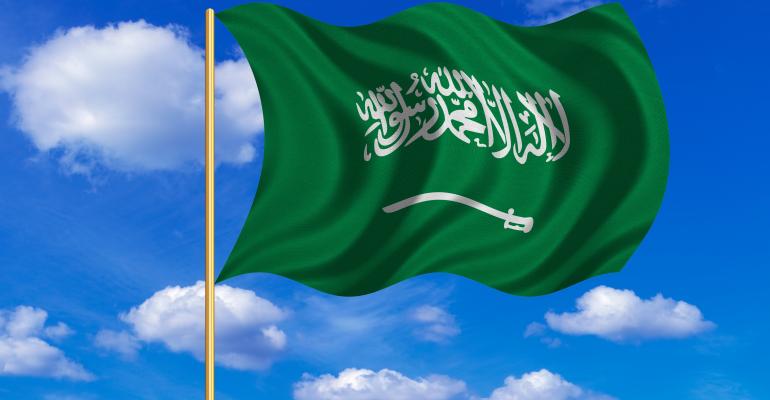(Bloomberg)—Saudi Arabia is emerging as the Middle East’s biggest deal-maker as the kingdom creates what it hopes will be the world’s largest sovereign wealth fund.
Its Public Investment Fund spent about $54 billion on investments last year, dwarfing the Qatar Investment Authority’s $3.5 billion, according to data from the Sovereign Wealth Fund Institute. The boycott-hit state has been shedding assets and investments fell from $20 billion in 2016, when the PIF had invested just $5 billion, according to the data.
Saudi Arabia’s deal-making is quickening as the kingdom steps up plans to transform its economy, while a diplomatic spat is hampering the QIA’s ability to continue making headline-grabbing global deals. In the past year alone, the PIF struck an agreement to invest $45 billion in SoftBank Group Corp.’s technology fund, committed $20 billion to an infrastructure fund with Blackstone Group LP and said it plans to invest about $1 billion in Virgin Group’s space companies.
“The PIF has been emerging as one of the most important pillars of Saudi Arabia’s economic diversification and it was a momentous year for it in terms of bringing several big deals to fruition,” said Monica Malik, chief economist at Abu Dhabi Commercial Bank. “At the same time, the QIA has been focused on supporting the domestic economy.”
Saudi Arabia’s fund now ranks at the eleventh largest with $224 billion of assets, while Qatar’s is at ninth place with $320 billion of holdings, according to the SWF Institute.
The PIF, which plans to control more than $2 trillion by 2030, is central to Saudi Arabia’s effort to diversify the economy away from oil under a plan known as Vision 2030. The sale of about a 5 percent stake in oil giant Saudi Arabian Oil Co. is expected to provide more funds for investments.
Of the $54 billion PIF invested last year, $45 billion was in information technology, $4.8 billion in real estate, $2.4 billion in consumer staples and $1 billion into industrials, according to the SWF Institute data. It didn’t give details of the deals.
The fund accounted for more than 70 percent of Middle East sovereign deals, making up for a drop in investments from Qatar and Abu Dhabi where the merger of Mubadala and International Petroleum Investment Corp. led to fewer deals “as the combined entity reviewed assets and strategy,” according to Rachel Pether, an adviser at the SWF Institute.
Qatar Blockade
For Qatar, an eight-month boycott by neighboring states including the United Arab Emirates and Saudi Arabia has forced the country’s sovereign fund to focus on its economy and financial system, instead of trophy assets. The QIA has injected billions of dollars into local banks to shore up liquidity as the ongoing campaign hurts lenders.
As well as holding off on new investments, the QIA is reversing a decade-long run in high-profile foreign deals by selling assets. The QIA last year sold a block of shares in luxury jewelry retailer Tiffany & Co. after reducing stakes in Credit Suisse Group AG and Rosneft PJSC.
This year, sustained low oil prices are expected to hurt appetite for deals from the region’s sovereign funds.
“I expect Gulf investors to be under increased domestic scrutiny with regards to their performance,” said Sven Behrendt, managing director of GeoEconomica in Geneva. “They have to demonstrate that they make a meaningful contribution to public finances, as oil prices and related revenues stay moderate.”
To contact the reporter on this story: Matthew Martin in Dubai at [email protected] To contact the editors responsible for this story: Stefania Bianchi at [email protected] Shaji Mathew
COPYRIGHT
© 2018 Bloomberg L.P

